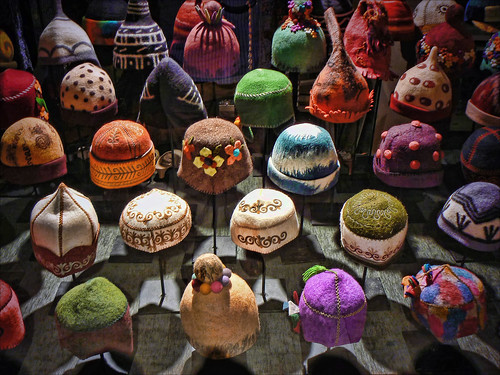Around 170 A.D., Marcus Aurelius wrote, “Pride is a master of deception: when you think you’re occupied in the weightiest business, that’s when he has you in his spell.” Even in religion, “pride” is listed as the most detrimental of the Seven Deadly Sins. Pride is the insidious parasite that sidles into your consciousness when, as Marcus said, you believe too strongly that the work you do is all-important. Examples from history abound: Maximilien Robespierre, after spearheading the French Revolution and sending the royal family to the guillotine, tried to push his deistic beliefs—“the Cult of the Supreme Being”—on the French citizenry, and was promptly sent to the guillotine himself; Cyrus the Younger, in an attempt to usurp the title King of Persia from his brother, Ataxerxes II, was slain by his own blood in a civil war; Louis Borders, co-founder of Borders Bookstores, had all the money, investors, and connections needed to create a successful online grocery delivery service, but Webvan nonetheless failed in plain view, in fact voted the largest dot-com flop in history by CNET.
“Pride is a master of deception: when you think you’re occupied in the weightiest business, that’s when he has you in his spell.”
—Marcus Aurelius
The common thread among all of the above examples is the extreme sense of pride that one’s ambitions could not possibly go awry. Every failure believes that they are meant to be doing the work they’re consumed by; and if they fail—no, when they fail—they fail in grandiose fashion.
This is the thought that occupies the back of my mind as people talk of “American Pride.” I’m sure al-Qaeda had pride in the job they did on September 11th. Who’s to say that their pride is wrong and ours is right? Nietzsche’s On the Genealogy of Morals obviously comes to mind: “While every noble morality develops from a triumphant affirmation of itself, slave morality from the outset says No to what is ‘outside,’ what is ‘different,’ what is ‘not itself.’” This “slave morality”—Is it not the same morality that says No to those races that are different from ours? Is it not the same morality that condemned “colored people” for centuries? Is it not the same morality that manifests in the typical portrayal of “pride in one’s country”?
“…slave morality from the outset says No to what is ‘outside,’ what is ‘different,’ what is ‘not itself.’”
—Nietzsche, On the Genealogy of Morals
I’ve always observed that the overwhelming majority of people don’t know why they do or think what they do or think, and this is obviously the case in how Muslims are portrayed in the media. Maybe this is just the macro manifestation of a mob mentality gone completely apeshit crazy over a threat to their precious pride: the reporters need a story, and the American Pride is always a good headline, so even now, ten years after the threat, we rejoice over the loss of a life, we celebrate over the murder of a man of our own species. Or perhaps this is the kind of anti-cosmopolitan world we live in: whenever there is an inter-race conflict, the media will serve as cheerleaders to our cause, as a rallying point for our narcissistic, head-phone-wearing, screen-staring, detached generation that won’t dare to step outside its cultural vacuum.
Or maybe, just maybe, we can find a thought leader that has actually studied the classical philosophies and histories—not simply trained to smile in front of audiences and preach hope—and appreciates, no, affirms and embraces the cultural diversity that will collide with our generation like a plane into a building.
Let’s instead take a step back and learn from the man that wrote the book on cultural synergy, Cosmopolitanism. In the following clip from Examined Life, Kwame Anthony Appiah talks about how to reconcile clashing cultural customs with ever-growing globalization. I beg of you, watch the video, and then read the book.

Leave a Reply